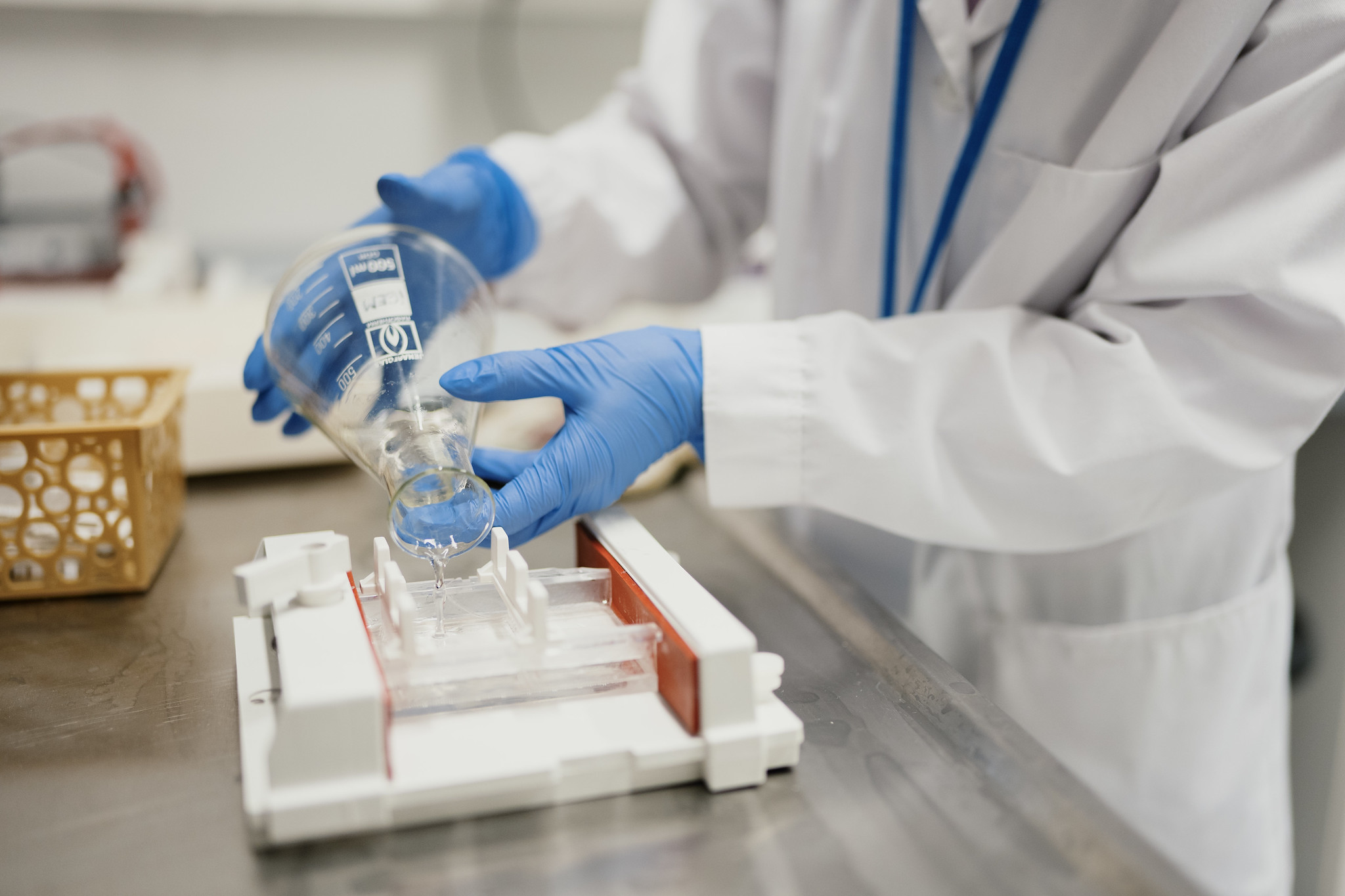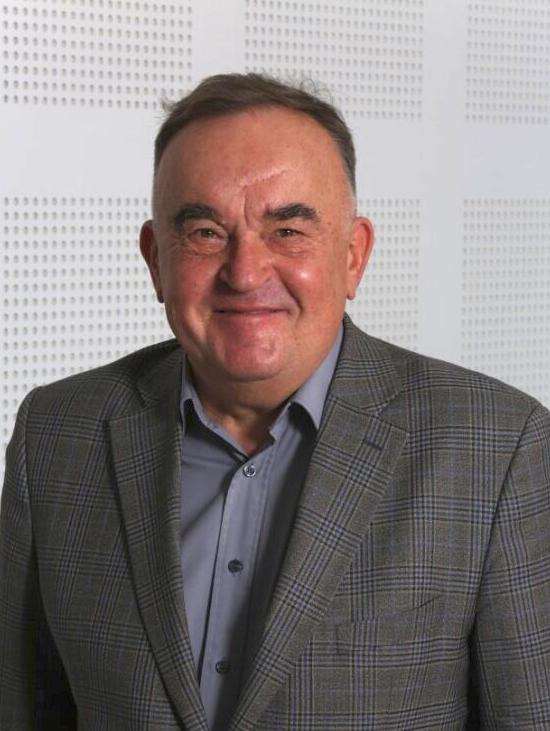Dr. Narimantas Čėnas – Why It Is Important for Our Health to Study Xenobiotics, and Why We Should Be Skeptical of Antioxidant Supplements

Research into redox-active drugs, their analogues, and precursors is ongoing in the laboratory of Research Professor Narimantas Čėnas. “These are often not the kind of preparations that we get in the pharmacy, but their research allows us to predict new possibilities for the application of drugs or their side effects,” says the scholar.
Dr. N. Čėnas’ scientific activity has been going on for almost 45 years, and during that time, he managed to carry out many interesting kinds of research – the researcher currently often collaborates with colleagues not only from Lithuania but also from France, New Zealand, Japan, and Uruguay.
Dr. N. Čėnas is also researching polyphenolic antioxidants. This term, as he says, is often manipulated - teas and other supplements should be viewed with skepticism, it is enough to eat green vegetables and fruits, and he recommends selenium as a supplement. We are talking with a scholar from Vilnius University’s Life Sciences Center about xenobiotics, antioxidants, and their effects.
How do xenobiotics appear in our bodies?
Xenobiotics are compounds that are not synthesized in the organism. They enter the body from the environment. What could it be? Exhaust gas components, residues of pesticides, or explosives. Medicines and various food preservatives are used as well.
Why is the understanding of the biochemical effects of xenobiotics important for our health?
As a rule, an effective drug must have several targets: for example, enzymes, membranes, and receptors. These interactions determine the therapeutic or cytotoxic (anticancer, antiparasitic, etc.) effects of drugs. However, drugs can also cause side effects, the mechanisms of which are often less well understood. Most interestingly, the side effects of many environmental pollutants and drugs share the same mechanisms of action. Therefore, the study of the mechanisms of the transformations of these compounds is of general fundamental importance.
We focus on redox-active chemical compounds of various classes: quinones, aromatic nitro compounds, and N-oxides, as well as polyphenols.

Dr. Narimantas Čėnas
What are they?
Redox-active compounds are those that participate in oxidation-reduction reactions under physiological conditions. Oxidation-reduction occurs when one substance transfers electrons to another. For example, respiration is also oxidation-reduction because oxygen accepts 4 electrons, and water is formed from oxygen. On the other hand, respiration is accompanied by a kind of defect: a few percent of electrons are carried in a one- or two-electron way when toxic superoxide or hydrogen peroxide is formed.
This is closely related to one of our directions of work - research into the molecular mechanisms of oxidative stress. Oxidative stress is an increased concentration of free radicals and active forms of oxygen in the organism. This is a harmful phenomenon, as membrane lipid peroxidation and DNA modification occur, but it also has, in many cases, a positive effect, as it kills cancer cells and parasites. However, there is also a side effect that occurs according to the same mechanism. Healthy cells in the body are also damaged to some extent. Our task is to study the enzymatic mechanisms of these reactions.
Why is it necessary to study the mechanisms of enzymes?
Enzymes are proteins that perform catalytic functions - they accelerate the reactions that, without their participation, would take place very, very slowly. In our case, enzymes transfer one or two electrons in the so-called active centres. We are trying to understand how those reactions take place, their quantitative regularities, and which enzymes in the cell are responsible for it.
You mentioned anticancer drugs. What types of cancer are they used for?
Our research is just initial. It is like a fundamental introduction, a basis for further research. If successful, its practical application can take 15–20 years. More specifically, in cooperation with other laboratories, we study cells of hepatocellular, rectal carcinomas, and leukaemia, and we use potential drugs or their analogues.
For example, a joint project with the Center for Innovative Medicine has resulted in several cancer cell lines that are insensitive or less sensitive to quinone and N-oxide drugs. We performed their proteomic analysis and identified which enzymes are responsible for resistance, discovered several new targets that were previously disregarded, and also refuted several previous hypotheses.
We focus on the reactions of flavin redox enzymes, which are the basis for determining why some compounds have increased cytotoxicity. This knowledge allows selective use of compounds with less harm to the organism.
Another direction of your research is antiparasitic compounds for the treatment of tropical diseases such as malaria or Chaga disease. You cooperate with researchers from France and Uruguay. Tell us more about these studies.
We mostly studied the antioxidant enzyme glutathione reductase and the pro-oxidative enzyme ferredoxin reductase of the malaria parasite Plasmodium falciparum. By studying nitroaromatic compounds and quinones, we found a parallelism between the antiparasitic effect of those compounds and the expression of two parallel mechanisms: the inhibition efficiency of glutathione reductase and the rate of free radical formation under the action of ferredoxin reductase. Studies on the antiplasmodial activity of the compounds according to our schemes were carried out at the National Museum of Natural History in Paris. Analogously, we studied the antioxidant enzyme trypanothione reductase of trypanosomes, i.e., the parasites that cause Chaga’s disease and sleeping sickness. Here, we obtained certain patterns of inhibition of this enzyme by nitroaromatic compounds. Studies carried out at the Montevideo Pasteur Institute have shown that there is a relationship between the trypanocidal activity of our compounds and the effectiveness of trypanothione reductase inhibition. Hereby, we have quantitatively demonstrated for the first time that trypanothione reductase can be an important target of this class of compounds.
You mentioned oxidative stress; now, you can hear this term in many places. Does this mean that by understanding its mechanisms of action, we could control it? Is there a link between oxidative stress and ageing?
Oxidative stress is almost the same as radiation but far less intense. Certainly, it can be responsible for the ageing of cells and the whole organism. Paradoxically, low concentrations of activated oxygen forms - superoxide and hydrogen peroxide - perform signalling functions, thereby supporting the vitality of the organism. Therefore, oxidative stress needs to be reduced to a certain limit.
When relatively simple detection methods became available, it was found that oxidative stress occurs in many places, for example, during viral infection. The simplest explanation would be that, after short-term damage to the membrane structure, the redox centres that were not in contact with oxygen before begin to come into contact with it. By transferring their electrons to oxygen, activated forms of oxygen are formed.
However, there is now an information overload in this area. The most important thing is to quantify the specific damage of oxidative stress and also to find out whether it is the cause or the consequence of the phenomenon.
In your laboratory, you also worked with explosives, studying their cytotoxicity.
When hostilities take place, a lot of explosive remnants are scattered around the environment. Besides, explosives are used in mining. There were many fatal poisonings in explosives factories, especially during the First World War when protective measures were not used. Explosives affect the liver, kidneys, and blood cells.
Despite considerable work in this field, our studies of the reactions of explosives with redox enzymes have been quite valuable. Oxidative stress is also at work here. Structure-activity relationships of explosives obtained during enzymatic reactions were confirmed by studying mammalian cell cultures. Another direction of our research is some stages of biodegradation of explosives by reducing them with flavoenzymes nitroreductases.
Another scientific interest of yours is antioxidants. Tell us more about them. I’ve noticed that this term is often manipulated.
We have been researching polyphenolic and flavonoid antioxidants abundantly found in fruits and vegetables for a long time. It was clear that these compounds are not very stable and can transform into each other and oxidize in the organism.
We were among the first in the world to identify the paradoxical phenomenon that the cytotoxicity of antioxidants is pro-oxidant, that is, under physiological conditions, their quinone or quinomethide oxidation products cause oxidative stress. These phenomena take place quite quickly, within 24 hours. Therefore, although there is a certain positive effect of antioxidants in the organism, I am not too optimistic about it, as well as their increased consumption.
Antioxidant-enriched teas and supplements are often offered. What do you think about it?
I think there are too many advertising and marketing tricks here. Sometimes, scientific facts are neglected, only positive features are emphasized, and studies that may have shown opposite results are ignored. Polyphenolic antioxidants break down faster in hot teas. Sometimes, preparations contain both antioxidant and pro-oxidant compounds, which can react with each other. The absorption of antioxidants in the intestines and their effect on the “good” intestinal bacteria are a separate topic.
I believe that instead of supplements, you should eat raw vegetables and fruits, and in my subjective opinion, of as many different colours as possible. However, as supplements, I would recommend selenium supplements, of course, without overdoing them, and fish oil.
And my last question - you do a lot of different research. How did you get interested in science in the first place?
It seems that since adolescence. I had good biology and chemistry teachers, and I did well in the Olympiads of young biologists and chemists, so, without much hesitation, I chose to study chemistry, and in the long run, I transformed into a dilettante in many fields.
Interviewed by Goda Raibytė-Aleksa